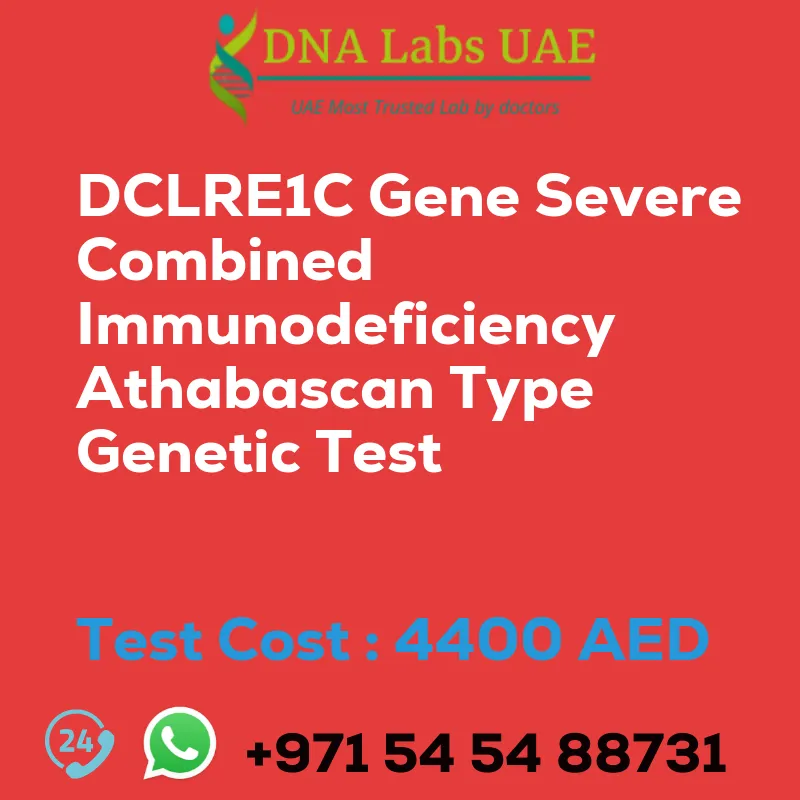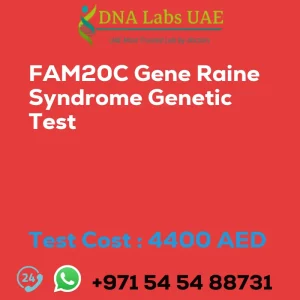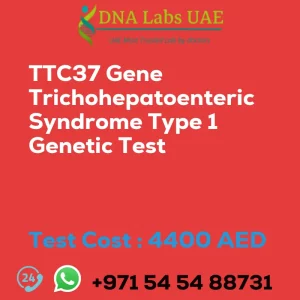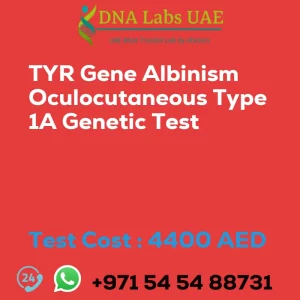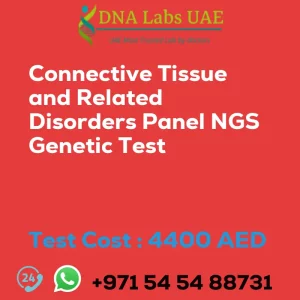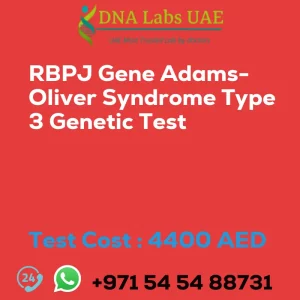DCLRE1C Gene Severe combined immunodeficiency Athabascan type Genetic Test
At DNA Labs UAE, we offer the DCLRE1C Gene Severe combined immunodeficiency Athabascan type Genetic Test at a cost of AED 4400.0. This test is designed to diagnose individuals with severe combined immunodeficiency (SCID), Athabascan type, a rare genetic disorder characterized by a severe impairment of the immune system.
Test Components
- Price: 4400.0 AED
- Sample Condition: Blood or Extracted DNA or One drop Blood on FTA Card
- Report Delivery: 3 to 4 Weeks
- Method: NGS Technology
- Test Type: Osteology Dermatology Immunology Disorders
Doctor and Test Department
This test is conducted by our experienced Dermatologist and is performed in our Genetics department.
Pre Test Information
Prior to the test, it is important to provide the clinical history of the patient who is going for the DCLRE1C Gene Severe combined immunodeficiency, Athabascan type NGS Genetic DNA Test. Additionally, a Genetic Counselling session will be conducted to draw a pedigree chart of family members affected with DCLRE1C Gene Severe combined immunodeficiency, Athabascan type NGS Genetic DNA Test gene DCLRE1C.
Test Details
The DCLRE1C gene is associated with the development of severe combined immunodeficiency (SCID), Athabascan type. SCID is a group of inherited disorders characterized by a severe impairment of the immune system, making individuals highly susceptible to infections.
The DCLRE1C gene provides instructions for producing a protein called DNA cross-link repair 1C. This protein is responsible for repairing DNA damage that occurs during the development of immune cells. However, mutations in the DCLRE1C gene can result in a nonfunctional or partially functional protein, leading to a defective immune system.
NGS (Next-Generation Sequencing) genetic testing is a high-throughput method used to sequence the entire or specific regions of the genome. In the context of DCLRE1C gene-related SCID, NGS genetic testing can be used to identify mutations or variations in the DCLRE1C gene that may be responsible for the disorder.
By analyzing the genetic sequence of the DCLRE1C gene, NGS genetic testing can help diagnose individuals with SCID, Athabascan type. This can assist in providing appropriate medical management, genetic counseling, and potentially targeted therapies for affected individuals.
| Test Name | DCLRE1C Gene Severe combined immunodeficiency Athabascan type Genetic Test |
|---|---|
| Components | |
| Price | 4400.0 AED |
| Sample Condition | Blood or Extracted DNA or One drop Blood on FTA Card |
| Report Delivery | 3 to 4 Weeks |
| Method | NGS Technology |
| Test type | Osteology Dermatology Immunology Disorders |
| Doctor | Dermatologist |
| Test Department: | Genetics |
| Pre Test Information | Clinical History of Patient who is going for DCLRE1C Gene Severe combined immunodeficiency, Athabascan type NGS Genetic DNA Test. A Genetic Counselling session to draw a pedigree chart of family members affected with DCLRE1C Gene Severe combined immunodeficiency, Athabascan type NGS Genetic DNA Test gene DCLRE1C |
| Test Details |
The DCLRE1C gene is associated with a rare genetic disorder called severe combined immunodeficiency (SCID), Athabascan type. SCID is a group of inherited disorders characterized by a severe impairment of the immune system, making individuals highly susceptible to infections. The DCLRE1C gene provides instructions for producing a protein called DNA cross-link repair 1C. This protein is involved in repairing DNA damage that occurs during the development of immune cells. Mutations in the DCLRE1C gene can result in a nonfunctional or partially functional protein, leading to a defective immune system. NGS (Next-Generation Sequencing) genetic testing is a high-throughput method used to sequence the entire or specific regions of the genome. In the context of DCLRE1C gene-related SCID, NGS genetic testing can be used to identify mutations or variations in the DCLRE1C gene that may be responsible for the disorder. By analyzing the genetic sequence of the DCLRE1C gene, NGS genetic testing can help diagnose individuals with SCID, Athabascan type. This can assist in providing appropriate medical management, genetic counseling, and potentially targeted therapies for affected individuals. |

